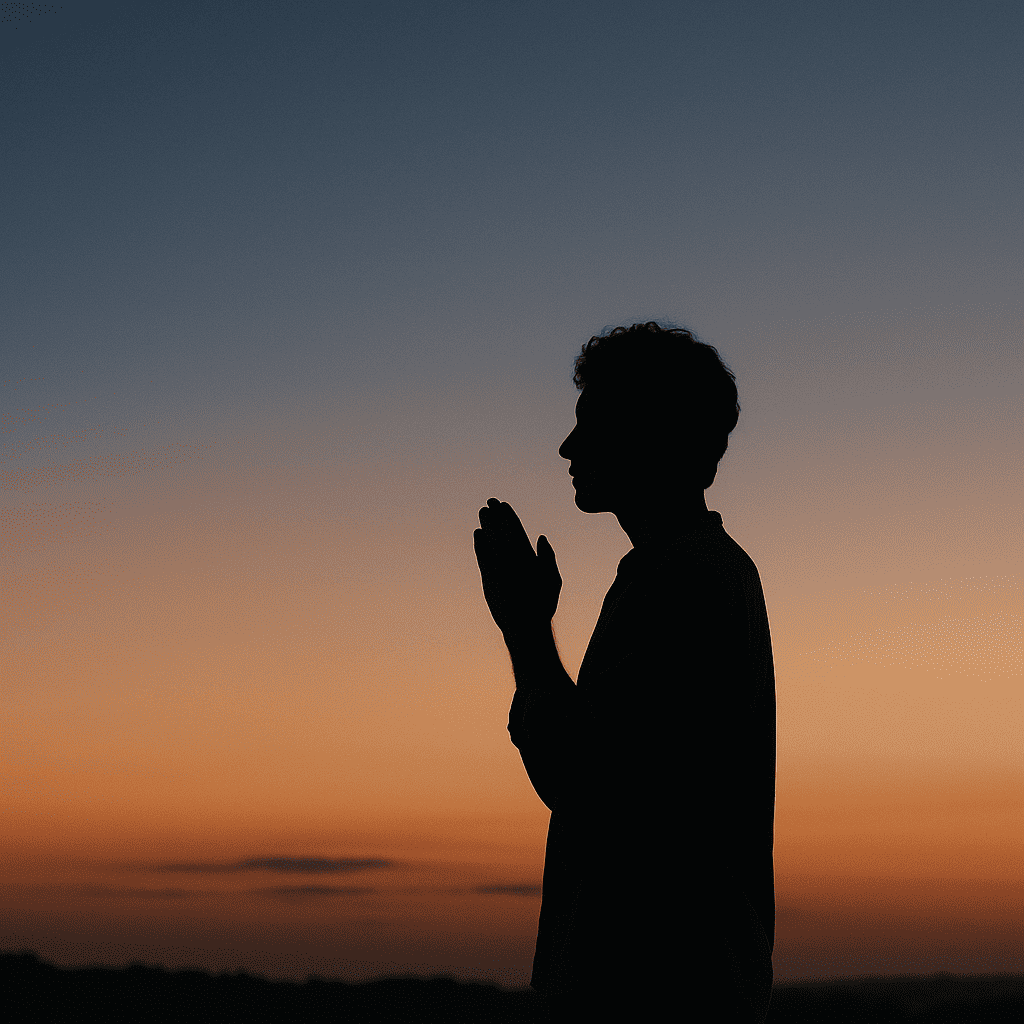What Do You Call God When You Don’t Fit in a Religion?
There’s a quiet kind of seeker in the world today, one who doesn’t reject religion, but doesn’t quite fit in one either.
Someone who senses there’s a Creator, a deeper pulse behind reality, but can’t quite settle on a single name, ritual, or creed to hold it.
They might light incense and whisper “thank you” to the universe.
They might fast during Ramadan, meditate to calm the noise, or open a Bible, a Bhagavad Gita, and a Rumi poem in the same week.
For them, spirituality is not rebellion, it’s curiosity.
It’s the courage to stay open, even when open feels uncertain.
So what do you call God when you don’t fit in a religion?
The Search for a Name
Names for the divine have always reflected humanity’s deepest intuitions about reality.
To say God is to imagine a being who listens; to say Allah is to invoke absolute unity and transcendence; to say Source is to describe an energy without personality, yet somehow personal.
Language builds the bridge between awe and articulation, but each word is only a partial translation of something wordless.
Every culture names the divine through the lens of what it values most.
- Judaism calls upon the covenantal partner.
- Christianity calls upon the incarnate love.
- Islam calls upon the oneness that orders all things.
- Hinduism and the mystic East remind us that the divine is not separate from us, but the ground of all being.
And somewhere between them all sits the modern seeker, aware that all names point to the same ocean, yet none can contain it.
Prayer, meditation, and presence are the common languages through which this ocean is approached.
Whether through a whispered supplication, a mantra, or stillness itself, the heart reaches for the unseen, and the unseen, in its own way, answers.

Borrowing from Many Wells
For many today, faith is less about conversion and more about composition.
It’s a tapestry, woven from threads that resonate, even if they come from different looms.
One might fast during Ramadan, not because of dogma, but because fasting sharpens awareness and gratitude. I still fast, though I no longer wear the label, some practices outlive the box they came in.
One might find moral grounding in the teachings of Jesus and inner silence through the meditations of the Buddha. Personally, I see both as deeply awakened teachers, arriving in different eras with a needed message, divinely called without being themselves the Divine.
The Kabbalah may offer glimpses into the structure of divine reality, while the Bhagavad Gita confronts us with timeless questions about desire, duty, and detachment.
This kind of spirituality is not necessarily confusion, it can be a living philosophy.
But there’s a caveat: borrowing wisdom without discipline risks becoming spiritual consumerism.
The depth of any practice comes from consistency, from showing up, not from collecting insights.
The fasting, the prayer, the silence, the service, these are scaffolds that hold the invisible architecture of the soul.
And yet, this openness also allows humility to flourish.
It says, “I might be wrong, but I’m willing to keep listening.”
That, in itself, is sacred.
Where Prayer Meets Meditation
For centuries, mystics from every faith have said that prayer and meditation are not opposites, they are two directions of the same act.
Prayer is reaching upward; meditation is listening downward.
One speaks, the other receives.
Together, they form a conversation between the seen and unseen.
The Sufi repeats dhikr, remembrance of the divine name, until thought dissolves into silence.
The Christian contemplative sits in centering prayer, resting in the stillness beyond words.
The Buddhist focuses on breath until the illusion of separation fades.
Each practice empties the self enough to remember what was always there, that the sacred isn’t far away, it’s beneath the noise.
In that stillness, the name you use for the divine stops mattering.
What matters is the quality of your attention.

Living Without a Box
To live without religious identity can feel both freeing and fragile.
There’s no safety net of doctrine or community; there’s only the ongoing conversation with mystery.
But perhaps that’s how faith was always meant to be, dynamic, unfolding, alive.
The modern seeker doesn’t necessarily reject the prophets or scriptures.
They honour them as messengers of a single, timeless intelligence, the same wisdom that whispered through the Buddha, Jesus, Lao Tzu, Rumi, Socrates, or even the quiet voice inside each of us.
What connects them isn’t uniformity of belief but a shared orientation toward truth.
This is a spirituality that prizes experience over inheritance, one that believes heaven and hell are not places to go, but states we create through how awake or asleep we are while living.
The New Oracle: When AI Replaces the Altar
Today, many people type their deepest questions into a search bar or a chatbot instead of whispering them into the dark.
In a way, artificial intelligence has become a new-age oracle, a mirror reflecting our collective knowledge, fears, and longing for guidance.
The questions once whispered in prayer now appear in a prompt box. Answers arrive fast, sometimes startlingly wise. Yet AI is only a polished mirror: it returns what we’ve taught it, which means it can reflect bias as readily as truth. Guidance still needs a listener, not just a generator.
Unlike a divine presence, it has no conscience, only pattern recognition.
It can give you the right information but not always the right wisdom.
The key is not to worship the algorithm, but to use it wisely, to question it, challenge it, and remember that real discernment still comes from the quiet, intuitive part of us that machines can’t replicate.
Staying in Conversation with the Real
Perhaps the point isn’t to name the Creator perfectly, but to stay in relationship with whatever The Real is, through prayer, silence, art, service, or simply honest curiosity.
To keep the dialogue open, even when certainty fails.
For some, that dialogue might still sound like God.
For others, it might sound like Presence, Source, Love, or simply the Universe.
Whatever word you use, what matters is that you mean it, and that you listen back.
If you’re drawn to explore the teachers, prophets, and thinkers who’ve each glimpsed this same mystery in their own language, visit The Guided Channel’s Spiritual Teachers Page, a collection of unique voices offering timeless wisdom, each pointing toward the same silent truth.



